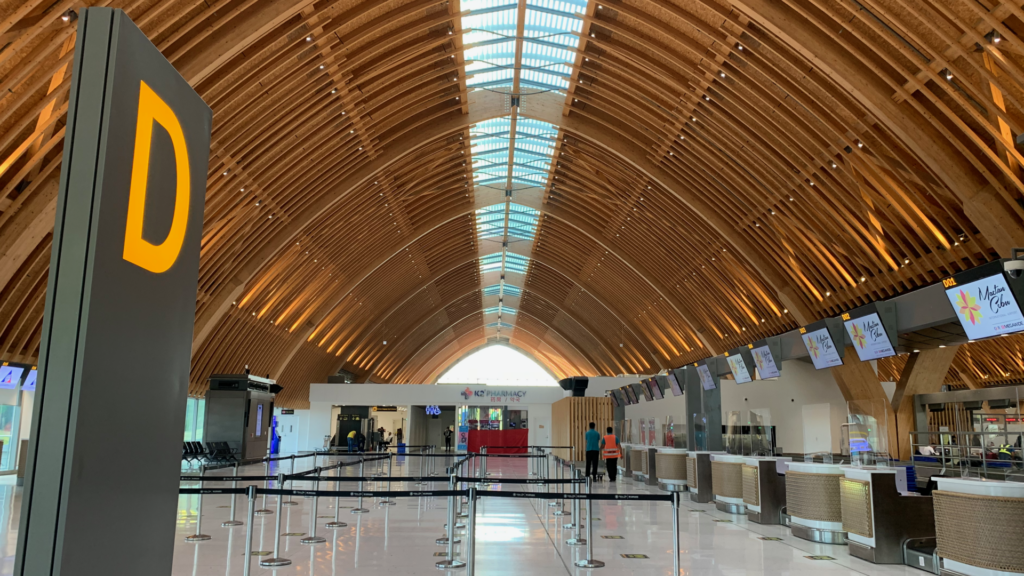
Mactan-Cebu International Airport. | file photo
CEBU, Philippines—Travelers passing through Mactan-Cebu International Airport (MCIA) will soon be greeted by cutting-edge digital ads similar to those lighting up Bonifacio Global City (BGC), a central business district in Taguig, Metro Manila.
This innovation is part of MCIA’s new partnership with United Neon Media Group (UNMG), which has become the airport’s exclusive advertising concessionaire.
The collaboration was announced during a press conference on November 21, 2024, with officials from both sides expressing excitement over how the initiative could elevate passenger experience while giving Cebu’s premier airport a modern edge.
READ MORE:
Mactan-Cebu Airport poised to become next transit hub
Mactan-Cebu Airport’s Terminal 2 earns Skytrax 4-star rating
Mactan-Cebu Airport eyes to build mall, hotel as long-term investment
“Over the next few months, we’ll be digitalizing advertising across Terminals 1 and 2,” said Benjamin Lim, UNMG’s Deputy Chief Operations Officer.
“The goal is to engage passengers more and deliver a better experience in this world-class airport,” he added.
UNMG is behind the digital advertising stunts in a central business district and major financial hub located in Taguig, Metro Manila, as well as the transit advertising campaign for one of the popular pink food delivery services.
Lim mentioned that travelers could soon encounter visually striking ads that combine creativity with cutting-edge technology. While he did not confirm whether they would be using the most popular 3D billboards in the business district, he noted that they are exploring possible executions for similar installations at the airport.
Such projects have already captivated audiences, with Filipinos traveling to Manila specifically to see these dynamic 3D displays.
Smart airport
But MCIA’s vision goes beyond flashy digital screens.
For Aldwin Uy, MCIA’s Deputy Chief Operations Officer, this partnership is part of a broader push to transform the airport into the Philippines’ first “smart airport.”
“Smart airports aren’t just about installing technology,” Uy said. “It’s about creating a culture of innovation. Our people must embrace these changes and use them in meaningful ways.”
He shared examples of how the airport has begun integrating technology into daily operations, like QR codes for asset management and a unified feedback system for passengers.
“Innovation should be value-driven and accessible. It’s not just about buying tech—it’s about humanizing it,” he said.
As Cebu remains one of the country’s top tourist destinations, officials see the digital transformation as a chance to enhance the province’s global appeal.
Uy said that the airport is the first and last touchpoint for many tourists and stated their goal of ensuring it reflects Cebu’s world-class aspirations, not only through services but also in how travelers are engaged from the moment they arrive.
New standard for airport advertising
Moreover, Nabil Rasheed, MCIA’s Deputy Chief Commercial Officer, shared the same view. He said that the collaboration with UNMG is aimed at both enhancing the passenger experience and generating revenue.
He added that the partnership offers an opportunity to showcase Cebu’s creativity and innovation to millions of travelers each year.
UNMG, a homegrown advertising powerhouse with nearly 90 years of experience, is no stranger to ambitious projects. From transit ads to urban media displays, the company has built a reputation for connecting brands with audiences in creative ways.
Lim believes this expertise will allow the partnership to set a new standard for airport advertising in the Philippines.
With digital displays set to roll out soon, both MCIA and UNMG are optimistic about the impact on travelers and the airport’s overall growth.
“We will work together on it, and we will really deliver a first also in Cebu,” Lim said.